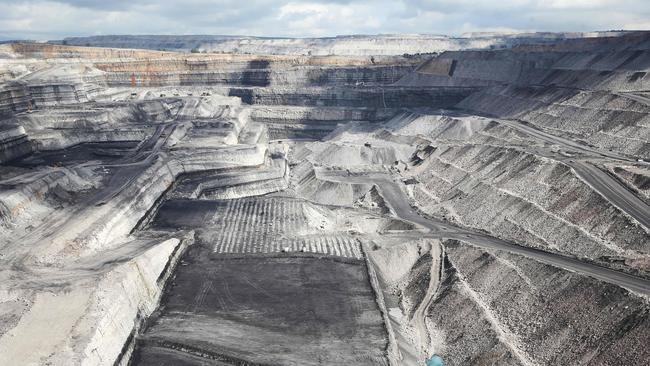Climate change concern after Federal Court’s decision on ministerial ruling
The judgment means the federal Environment Minister doesn’t have to consider climate change a factor in approving mining projects.

Climate scientists and environmental activists are calling for an immediate change to Australia’s environmental laws, following a Federal Court decision.
The Court on Wednesday handed down its judgment in the Living Wonders case, brought on by Environmental Justice Australia on behalf of the Environment Council of Central Queensland.
Federal Environment and Water Minister Tanya Plibersek, along with two mining companies, were seeking to expand two coal projects in NSW – Whitehaven Coal’s Narrabri underground project and MACH Energy’s Mount Pleasant mine.

The Federal Court sided with the government, and in doing so, set a precedent whereby the environment minister of the day will no longer be required to consider the environmental impacts of fossil fuel project approvals.
Essentially, it means Ms Plibersek can give Whitehaven and MACH the green-light.
President of the Environment Council of Central Queensland Christine Carlisle said while they respect the court’s decision, they’re “bitterly disappointed.”
“Two big fossil fuel companies stood by Minister Plibersek’s legal team every day in court and defended her refusal to act on the climate harm of their projects,” Ms Carlisle said.
“Those mining companies might be celebrating tonight, but there is no way a responsible government could call this a win. It’s devastating for us all.”

While Environmental Justice Australia Lawyer and Co-CEO Elizabeth McKinnon said they’ll study the judgment carefully and consider all legal avenues, such as appeals and injunctions.
“Whatever happens next, today’s decision does not change the science,” Ms McKinnon said.
“Nobody – not the Australian government or the coal mining companies – challenged the facts set out in the thousands of pages of climate evidence.
“You don’t need to be a lawyer or a scientist to know that, whatever our old laws say, climate change is relevant to coal and gas approvals.”
The Australia Institute’s Coal Tracker says Ms Plibersek has about 25 projects on her desk, awaiting her approval.
Their modelling shows, if approved, the Mount Pleasant and Narrabri mines combined would produce more than 1.1 billion tonnes of total emissions during their lifetimes.
Climate Council CEO Amanda McKenzie said the nation’s climate laws offer little protection against greenhouse gas emissions, which are fuelling climate change.
“The Great Barrier Reef is under threat. Rainforests are being decimated by catastrophic bushfires. Communities are withering under extreme heatwaves,” Ms McKenzie said.
“Despite this, today’s ruling makes clear that nothing currently stands in the way of massive new coal mines that will cause even more climate and environmental damage.”

The Council’s head of advocacy Dr Jennifer Rayner said while the Federal Court has closed one chapter on Australia’s “sorry” history of environmental law, the next chapter is the Albanese government’s to write.
“The government says it is simply following the law in giving fossil fuel projects the green light. That excuse doesn’t fly when it has the power to change it,” Dr Rayner said.
“The law should directly protect a safe and liveable climate for communities and nature … the law needs to be set up so it can knock back projects where this harmful pollution is simply too high.
“The Albanese government should act to fix this gaping hole in our national environment law.”
A spokesperson for Ms Plibersek’s office said they had only just received the judgment, and they will carefully work through its implications.
“No decision has been made about the projects yet,” the spokesperson said.




